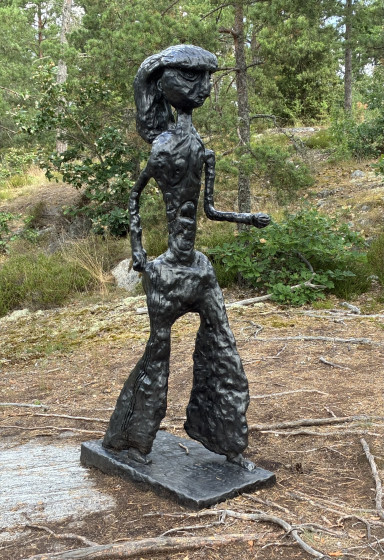

Stephan
Zilkens
,
Zilkens' News Blog 34 2025
Last Friday in Alaska wasn't really that great. The images of the two alpha males were not inspiring either. Here we have two men who couldn't care less about democracy. One comes from a country where attempts at democracy have failed miserably, and the other is trying to introduce absolutist conditions in a country that has traditionally been a defender of democracy and freedom, using methods that worked well after the seizure of power in Germany 1933. This is called Gleichschaltung – or, to put it more bluntly: if you don't want to be my brother, I'll beat you up – and we all know how that ends. And now, today in Washington, at a well-known location, the president of the invaded country, accompanied by his European escort, is to be given a stern talking-to. The land grab, which has been in violation of international law since 2014, will probably be sanctioned and the associated war crimes forgotten. If this happens, faith in justice will be lost once again, and all the principles established in connection with the 1998 Washington Principles, which should apply to any usurping, totalitarian subjugation, will be even more difficult to convey to younger generations. Are the victors of war innocent a priori?
There is a small but very influential association in Germany that is trying to support cultural assets and museums in Ukraine and provide them with the most necessary means to defend and preserve Ukrainian culture. Ukraine Art Aid Centre – UAAC for short. Now they are being honoured for their efforts with the Angel of Goodness award. It is not the angel of vengeance.
In Germany, a reputable insurance company has had a year of heavy losses – Nürnberger. The board obviously feels too weak to turn things around on its own and is looking for fresh capital. It sounds a bit like the old Gerling – may he rest in peace – which ultimately failed due to its owner's lack of entrepreneurial courage and was swallowed up by its arch-rival HDI. Now, the Vienna Insurance Group is not Nürnberger's arch-enemy, but rather a company that wants to continue growing strongly, including through acquisitions. On the other hand, the price being discussed seems far too low for other Nürnberger shareholders. Exciting – this could also turn into a D&O case. There are said to have been insurers in a similarly difficult situation to Gerling and Nürnberger who managed to remain independent by consistently implementing a profit-oriented underwriting policy.
Local elections are coming up in North Rhine-Westphalia in September, which I hope will not be turned into a test of public opinion on anything. But in Germany, cultural policy is a matter for the federal states, and the municipalities form the basis for the federal states. However, culture has not featured in the election campaigns so far. In some cities, the existing cultural buildings and museums are being left to rot, so that they can then be closed on the grounds of fire safety and the annoying costs can be dispensed with, with the expression of the deepest regret.
Very few artists can make a living exclusively from the sale of their works. Many – yes, we are not gender-neutral and use the generic masculine form – have other jobs on the side, if they are lucky enough to find work related to art (as drivers and packers for art transport companies). And yet, for most of them, what they create is also part of their retirement provision. But what happens if their works are destroyed in their custody due to an external event? Anselm Kiefer had to experience this after a flood – Rosemarie Trockel's studio burned down, to name a few prominent examples. Then that part of their retirement provision is gone, unless it is insured. The artists' social security fund is not responsible for this. Many save on the cost of insurance – and if it is the wrong insurance, then so much the better. You could also ask an insurance broker who specialises in art. It costs nothing and makes you smarter.
Everyone is talking about reducing bureaucracy – but not the EU Commission and its Parliament. From 1 September, there will be new regulations for the EU import control system. Shipments with inaccurate or incomplete descriptions may be rejected and subject to fines. Great – now we need a few more state-paid officials to check everything again.
Holy Bureaucratius – grant us a week full of positive surprises and forbid your followers from worshipping you.
With this in mind, we wish everyone a strong start to the week – Kobel reports on the first half of the 2025 art fair season.
Zilkens Fine Art Insurance Broker in Solothurn and Cologne
automatically translated